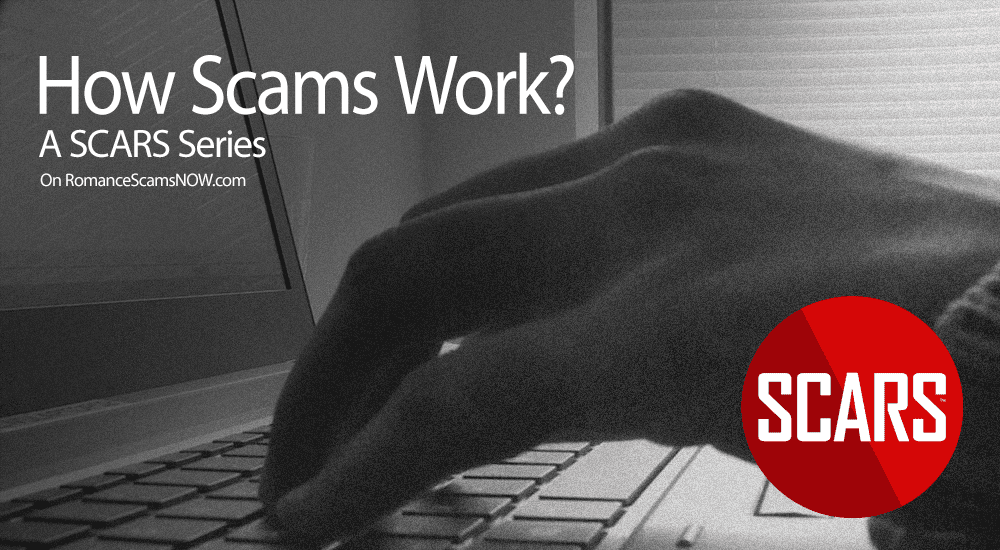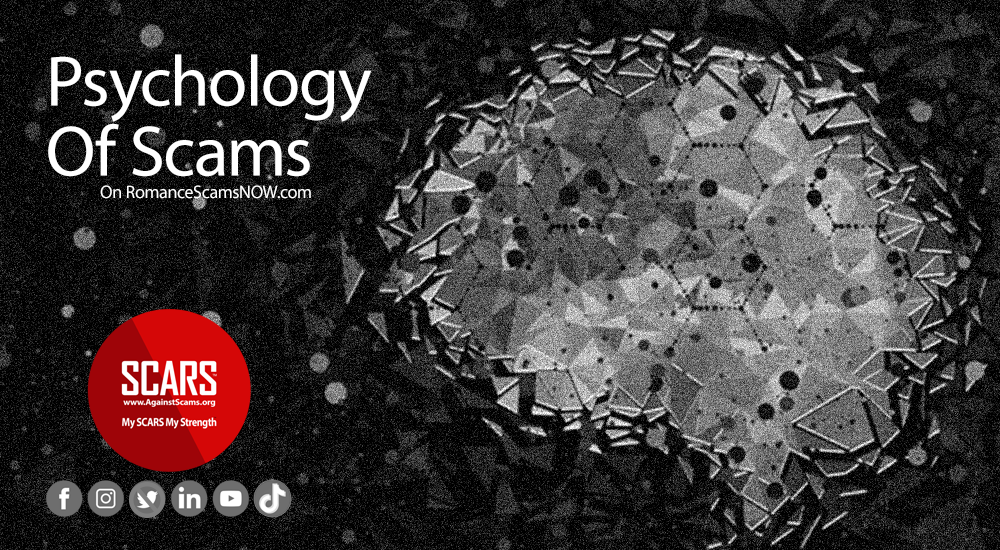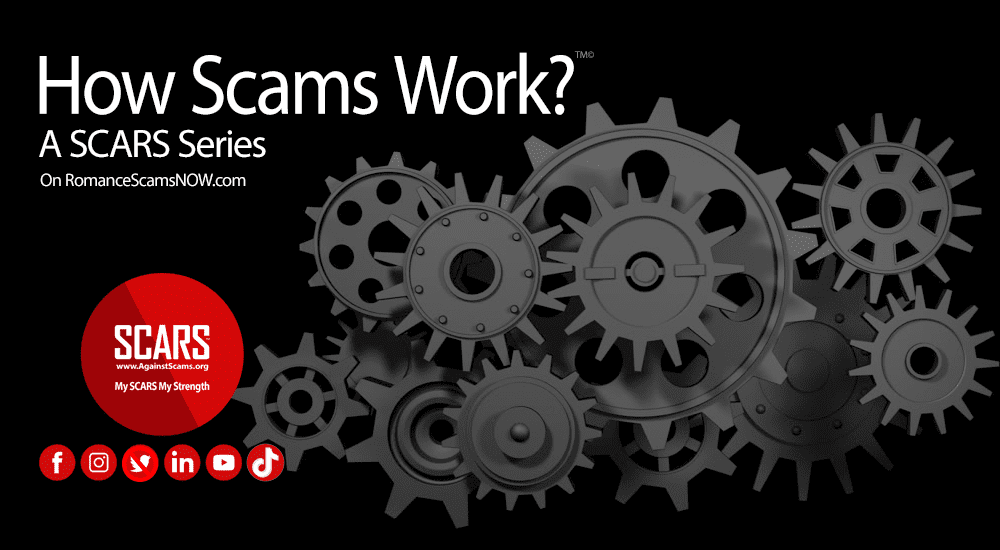
SCARS Institute’s Encyclopedia of Scams™ Published Continuously for 25 Years

Triangulation Fraud – Also Known As Three-way Fraud Or Drop Shipping Fraud, Is A Type Of E-commerce Fraud That Involves Three Parties: A Real Merchant, A Fake Merchant, And A Customer
What is Triangulation Fraud and How does it Work?
The Triangulation fraudster, who is the fake merchant, creates a fake online store and advertises it to potential customers. The store may sell a variety of products, but it is often focused on high-priced items such as electronics, designer clothes, or luxury goods.
When a customer orders a product from the fake online store, the triangulation fraudster purchases the product from the real merchant using a stolen credit card or another fraudulent payment method. The fraudster then ships the product to the customer directly.
The customer receives the product and is satisfied with their purchase, unaware that they have been the victim of fraud. The real merchant ships the product to the customer, but they never receive payment from the fraudster.
The fraudster makes money by selling the product to the customer for more than they paid for it or even the same – since they didn’t really pay for it, what they make is 100% profit. The real merchant loses money because they ship the product but never receive payment. The customer is also at risk, as their personal information may have been stolen by the fraudster.
Triangulation fraud is a difficult type of fraud to detect because it involves three parties, two of whom are unaware of the fraud. However, there are a few things that consumers and merchants can do to protect themselves from triangulation fraud.
How to Identify that a Customer is Part of a Triangulation Fraud Scheme
There are a few things that merchants can look for to identify customers who may be part of a triangulation fraud scheme:
- Customers who place large orders for high-priced items. Fraudsters often target high-priced items because they can make a larger profit on them. Also, since they are using stolen credit cards they may only be able to make one or two purchases before detection.
- Customers who use a different shipping address than their billing address. Fraudsters often ship the products to a different address than the billing address because they are using stolen credit cards.
- Customers who use multiple credit cards to make a purchase. Fraudsters may use multiple credit cards to avoid being flagged by fraud detection systems. Sometimes the triangulation fraudster will make multiple orders with different shipping addresses and different payment choices, to rush the merchant and get all the profit possible before detection.
- Customers who are new to your store and have no purchase history. Fraudsters often create new accounts to avoid being flagged by fraud detection systems. Merchants should always beware of new customers who do anything unusual.
- Customers who ask you to ship the product to a different address than the billing address, even if you have a policy against it. They may say that the purchase is a gift.
- New merchants/online retailers need to be especially cautious. New merchants typically have far less experience in fraud detection and do not have the technology in place to detect this type of e-commerce fraud.
If you see any of these red flags, you should be suspicious of the customer and may want to cancel the order. Merchants should never be afraid of canceling orders, since reliance on their fraud prevention rules will make them more money anyway.
How Merchants can Identify that are being used by a Triangulation Fraud Scheme
Merchants can identify that they are being used by a triangulation fraudster by looking for the following:
- A sudden increase in sales, especially for high-priced items.
- A large number of orders from new customers with no purchase history.
- A large number of orders with different shipping addresses than billing addresses.
- A large number of orders are paid for with multiple credit cards.
- A large number of orders are canceled or returned.
If you see any of these red flags, you should be suspicious that you may be the victim of triangulation fraud. You should contact the credit card companies involved in the disputed transactions and report the fraud to the authorities.
What Law Enforcement can do?
Law enforcement can help to combat triangulation fraud by investigating and prosecuting fraudsters, specifically the mule addresses and parcel mules. They can also work with merchants and consumers to educate them about triangulation fraud and how to protect themselves from it.
Law enforcement can also work with other countries to combat triangulation fraud, as it often involves international transactions.
How to Protect Yourself from Triangulation Fraud
Consumers and merchants can protect themselves from triangulation fraud by following these tips:
Consumers:
- Be wary of online stores that are offering high-priced items for significantly less than the market price.
- Do some research on the online store before making a purchase. Look for reviews from other customers and make sure that the store has a legitimate contact address and phone number.
- Use a credit card when making online purchases. Credit cards offer more fraud protection than debit cards.
- Be careful about what information you share with online stores. Only provide the information that is necessary to complete your purchase.
- Always look at who sent any pages you receive. If it comes from a different company name than who you placed an order with then this is a major red flag.
Merchants:
- Implement fraud detection systems to identify and flag suspicious orders.
- Be wary of orders for high-priced items, especially from new customers with no purchase history.
- Be wary of orders with different shipping addresses than billing addresses.
- Be wary of orders that are paid for with multiple credit cards.
- Contact the credit card companies involved in disputed transactions to report the fraud.
- Make it easy for apparently non-customers to contact you about orders they received. Most larger merchants make this very hard if not impossible.
- Establish a fraud reporting hotline!
By following these tips, consumers and merchants can help to protect themselves from triangulation fraud.
How to Report Triangulation Fraud
Consumers should report their suspicions to the merchant that shipped the product first to see if anything is wrong. DO NOT REPORT it to the merchant they purchased from, this just alerts the criminals.
If you think the merchandise was part of a fraud scheme, contact your credit/payment card provider immediately. Ask them to cancel the card number and do a chargeback. Real merchants will fight a chargeback, but fraudsters typically will not.
Do not do anything with the merchandise. Do not use it, keep it in the original box. It might be stolen property.
Contact your local police and explain what you suspect. Ask for an incident or report number, this is your proof of reporting and declaring your innocence.
You should also report the triangulation fraud to the FTC – see reporting.AgainstScams.org for details.
Summary
Triangulation fraud is a serious and growing threat to us all. Even if we are not involved in one of these schemes we pay for in through increased prices. Only the scammers win!
It is vital that every crime be reported. Scams and fraud got to be as large as they have in part because so few people report them.
Make sure you talk to your family and friends about triangulation fraud, especially teens and young adults. They are most often the victims without even knowing it. They have much less awareness of deception and are more tolerant of unusual practices.
More:
- Mule Addresses (scamsnow.com)
- Mule Address – Scam Basics (romancescamsnow.com)
- Parcel Mules And Reshipping Scams (romancescamsnow.com)
- What Is Triangulation Fraud ? – How Does It Work? | SEON
- What is Triangulation Fraud – Risks & Prevention – DataDome
- What is Triangulation Fraud and Why is Ecommerce at Risk? – Featurespace
- Block Inc. (SQUARE) Engaged In “Frictionless” Fraud Facilitation – Per A Hindenburg Research Report (romancescamsnow.com)
-/ 30 /-
What do you think about this?
Please share your thoughts in a comment below!
Table of Contents
- Triangulation Fraud Is A Growing Menace For Online Retailers & Customers
- Triangulation Fraud – Also Known As Three-way Fraud Or Drop Shipping Fraud, Is A Type Of E-commerce Fraud That Involves Three Parties: A Real Merchant, A Fake Merchant, And A Customer
- What is Triangulation Fraud and How does it Work?
- How to Identify that a Customer is Part of a Triangulation Fraud Scheme
- How Merchants can Identify that are being used by a Triangulation Fraud Scheme
- What Law Enforcement can do?
- How to Protect Yourself from Triangulation Fraud
- How to Report Triangulation Fraud
- Summary
- More:
LEAVE A COMMENT?
Recent Comments
On Other Articles
- SCARS Institute Editorial Team on Reporting Scams & Interacting With The Police – A Scam Victim’s Checklist [VIDEO]: “Yes, this is a scam. For your own sanity, just block them completely.” Feb 25, 15:37
- on Danielle Delaunay/Danielle Genevieve – Stolen Identity/Stolen Photos – Impersonation Victim UPDATED 2024: “She goes by the name of Sanrda John now” Feb 25, 10:26
- on Reporting Scams & Interacting With The Police – A Scam Victim’s Checklist [VIDEO]: “So far I have not been scam out of any money because I was aware not to give the money…” Feb 25, 07:46
- on Love Bombing And How Romance Scam Victims Are Forced To Feel: “I was love bombed to the point that I would do just about anything for the scammer(s). I was told…” Feb 11, 14:24
- on Dani Daniels (Kira Lee Orsag): Another Scammer’s Favorite: “You provide a valuable service! I wish more people knew about it!” Feb 10, 15:05
- on Danielle Delaunay/Danielle Genevieve – Stolen Identity/Stolen Photos – Impersonation Victim UPDATED 2024: “We highly recommend that you simply turn away form the scam and scammers, and focus on the development of a…” Feb 4, 19:47
- on The Art Of Deception: The Fundamental Principals Of Successful Deceptions – 2024: “I experienced many of the deceptive tactics that romance scammers use. I was told various stories of hardship and why…” Feb 4, 15:27
- on Danielle Delaunay/Danielle Genevieve – Stolen Identity/Stolen Photos – Impersonation Victim UPDATED 2024: “Yes, I’m in that exact situation also. “Danielle” has seriously scammed me for 3 years now. “She” (he) doesn’t know…” Feb 4, 14:58
- on An Essay on Justice and Money Recovery – 2026: “you are so right I accidentally clicked on online justice I signed an agreement for 12k upfront but cd only…” Feb 3, 08:16
- on The SCARS Institute Top 50 Celebrity Impersonation Scams – 2025: “Quora has had visits from scammers pretending to be Keanu Reeves and Paul McCartney in 2025 and 2026.” Jan 27, 17:45
ARTICLE META
Important Information for New Scam Victims
- Please visit www.ScamVictimsSupport.org – a SCARS Website for New Scam Victims & Sextortion Victims
- Enroll in FREE SCARS Scam Survivor’s School now at www.SCARSeducation.org
- Please visit www.ScamPsychology.org – to more fully understand the psychological concepts involved in scams and scam victim recovery
If you are looking for local trauma counselors please visit counseling.AgainstScams.org or join SCARS for our counseling/therapy benefit: membership.AgainstScams.org
If you need to speak with someone now, you can dial 988 or find phone numbers for crisis hotlines all around the world here: www.opencounseling.com/suicide-hotlines
A Note About Labeling!
We often use the term ‘scam victim’ in our articles, but this is a convenience to help those searching for information in search engines like Google. It is just a convenience and has no deeper meaning. If you have come through such an experience, YOU are a Survivor! It was not your fault. You are not alone! Axios!
A Question of Trust
At the SCARS Institute, we invite you to do your own research on the topics we speak about and publish, Our team investigates the subject being discussed, especially when it comes to understanding the scam victims-survivors experience. You can do Google searches but in many cases, you will have to wade through scientific papers and studies. However, remember that biases and perspectives matter and influence the outcome. Regardless, we encourage you to explore these topics as thoroughly as you can for your own awareness.
Statement About Victim Blaming
SCARS Institute articles examine different aspects of the scam victim experience, as well as those who may have been secondary victims. This work focuses on understanding victimization through the science of victimology, including common psychological and behavioral responses. The purpose is to help victims and survivors understand why these crimes occurred, reduce shame and self-blame, strengthen recovery programs and victim opportunities, and lower the risk of future victimization.
At times, these discussions may sound uncomfortable, overwhelming, or may be mistaken for blame. They are not. Scam victims are never blamed. Our goal is to explain the mechanisms of deception and the human responses that scammers exploit, and the processes that occur after the scam ends, so victims can better understand what happened to them and why it felt convincing at the time, and what the path looks like going forward.
Articles that address the psychology, neurology, physiology, and other characteristics of scams and the victim experience recognize that all people share cognitive and emotional traits that can be manipulated under the right conditions. These characteristics are not flaws. They are normal human functions that criminals deliberately exploit. Victims typically have little awareness of these mechanisms while a scam is unfolding and a very limited ability to control them. Awareness often comes only after the harm has occurred.
By explaining these processes, these articles help victims make sense of their experiences, understand common post-scam reactions, and identify ways to protect themselves moving forward. This knowledge supports recovery by replacing confusion and self-blame with clarity, context, and self-compassion.
Additional educational material on these topics is available at ScamPsychology.org – ScamsNOW.com and other SCARS Institute websites.
Psychology Disclaimer:
All articles about psychology and the human brain on this website are for information & education only
The information provided in this article is intended for educational and self-help purposes only and should not be construed as a substitute for professional therapy or counseling.
While any self-help techniques outlined herein may be beneficial for scam victims seeking to recover from their experience and move towards recovery, it is important to consult with a qualified mental health professional before initiating any course of action. Each individual’s experience and needs are unique, and what works for one person may not be suitable for another.
Additionally, any approach may not be appropriate for individuals with certain pre-existing mental health conditions or trauma histories. It is advisable to seek guidance from a licensed therapist or counselor who can provide personalized support, guidance, and treatment tailored to your specific needs.
If you are experiencing significant distress or emotional difficulties related to a scam or other traumatic event, please consult your doctor or mental health provider for appropriate care and support.
Also read our SCARS Institute Statement about Professional Care for Scam Victims – click here to go to our ScamsNOW.com website.

















Thank you for your comment. You may receive an email to follow up. We never share your data with marketers.